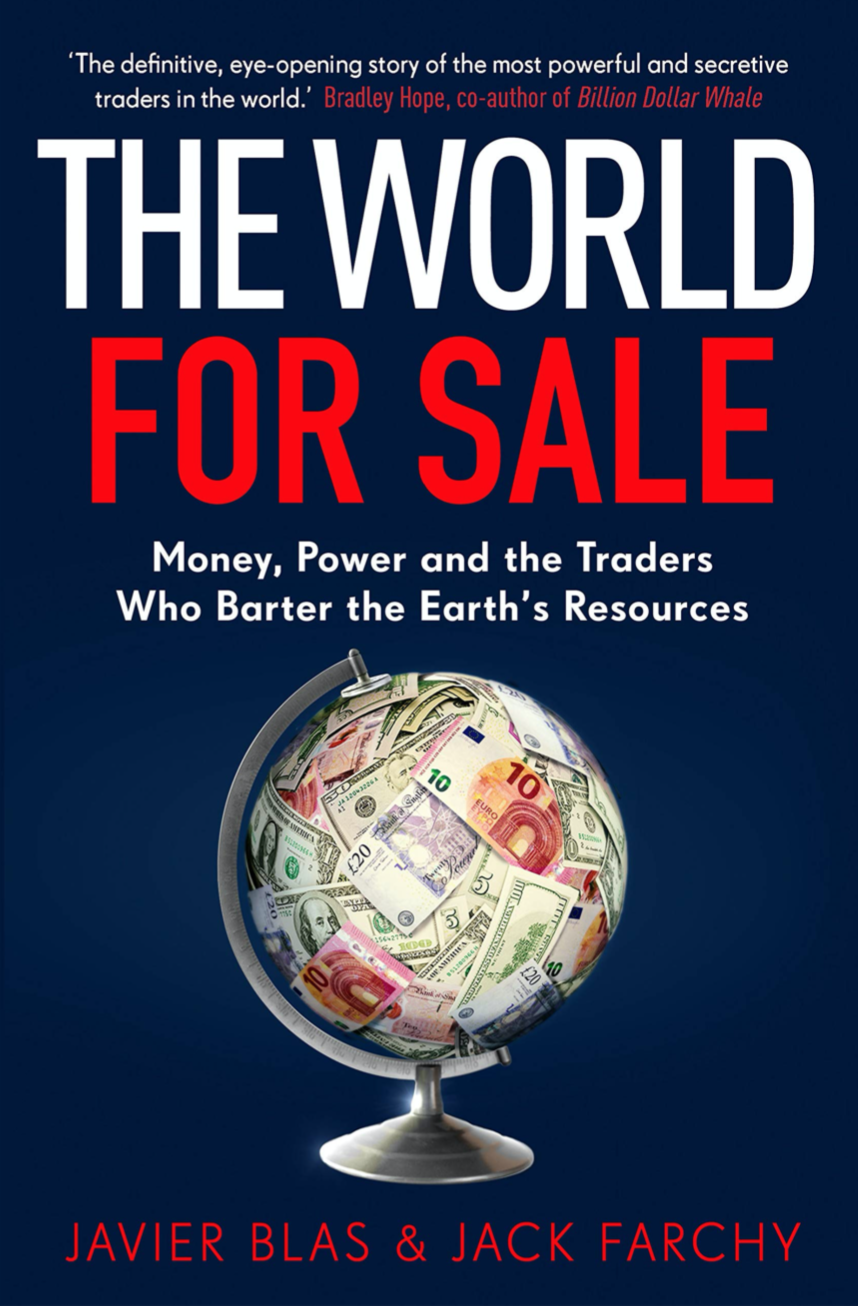Javier Blas & Jack Farchy, The World For Sale. Money, Power and the Traders. Who Barter the Earth's Resources (London: Random House Business, 2021) 410 pp.
April 13, 2021
review / Ignacio Urbasos
In what is probably the first book dedicated exclusively to the world of commodities trading, Javier Blas and Jack Farchy attempt to delve into a tremendously complex industry characterized by the secrecy and opacity of its operations. With more than two decades of journalistic experience covering the world of natural resources, first for the Financial Times and later for Bloomberg, the authors use valuable testimonials from professionals in the sector to build an honest account.

The book covers the history of the commodities trading world, beginning with the emergence of small intermediaries responding to the growing need after World War II to supply raw materials to Western economies in their reconstruction processes. The oil nationalization of the 1960s offered an unprecedented opportunity for these intermediaries to enter a sector that, until then, had been restricted to the traditional oil majors. The new petro-states, now in control of their own oil production, needed someone to buy, store, transport and finally sell their oil abroad. This opportunity, together with the oil crises of 1973 and 1978, allowed these intermediaries to obtain an unprecedented booty: a booming sector with an enormous volatility in its prices, which allowed them to obtain millionaire profits. With the fall of the Soviet Union and the socioeconomic collapse of a large part of the socialist world, companies dedicated to the purchase and sale of raw materials found a new market, with enormous natural resources and without any experience in capitalist market Economics subject With the entrance of the 21st century and the so-called " CommoditiesSupercycle", trading companies enjoyed a period of exorbitant profits in a context of rapid global growth led by China. It is in these last two decades that Vitol, Trafigura, Glencore or Cargill have exponentially increased their revenues, with global presence and managing all subject of commodities, both physically and financially.
Throughout the different chapters, the authors deal without complexes with the chiaroscuro of the trading world. On many occasions, these companies have enabled countries in crisis to avoid economic collapse by offering financing and the possibility of finding a market for their resources, as in the paradoxical case of Cuba, which threw itself into the arms of Vitol to supply oil in exchange for sugar during the "Special Period". However, the dominant position of these companies vis-à-vis states in a status of enormous vulnerability has ended up generating relationships in which the benefits are unequally shared. A paradigmatic case, covered exhaustively in the book, is that of Jamaica in the 1970s, which was enormously indebted and impoverished, when Marc Rich and Company became one of the country's main creditors, in exchange for de facto control of the country's bauxite and aluminum mining production. These situations continue today, with Glencore as Chad's main creditor and a key player in the African country's fiscal austerity policies.
Nor do the authors hide the lack of scruples of these companies to maximize their profits. Thus, they supplied apartheid South Africa with oil or clandestinely sold Iranian crude oil in the midst of the Hostage Crisis. Likewise, these large companies have never had problems dealing with autocrats or being an active part of major corruption schemes. Nor have environmental scandals been a rarity for these companies, which have been forced to pay millions in compensation for negligent management of toxic products, as in the case of Glencore and the sulfur spill in Akouedo, which resulted in 95,000 victims and the payment of 180 million to the Ivory Coast government. It is not surprising that many of the executives of these companies have ended up in prison or persecuted by the law, as in the case of Mark Rich, founder of Glencore, who had to live in Spain until he obtained a controversial pardon from Bill Clinton on the last day of his presidency.
Undoubtedly, The World For Sale by Javier Blas and Jack Farchy provides a better understanding of a sector as opaque as commodities trading. An industry dominated by companies with complex fiscal Structures of transnational presence and whose activities often remain outside of public scrutiny. As an industry of growing economic and political importance, it is essential to read this book to gain a critical and realistic perspective on an essential part of our globalized Economics .